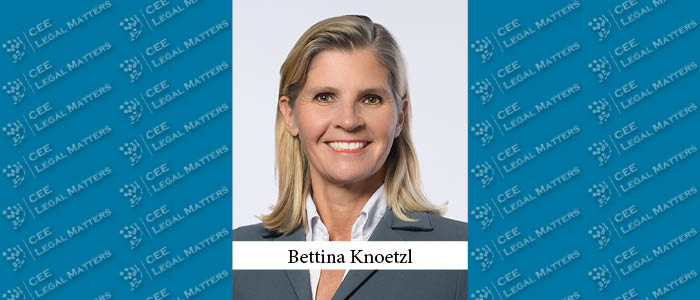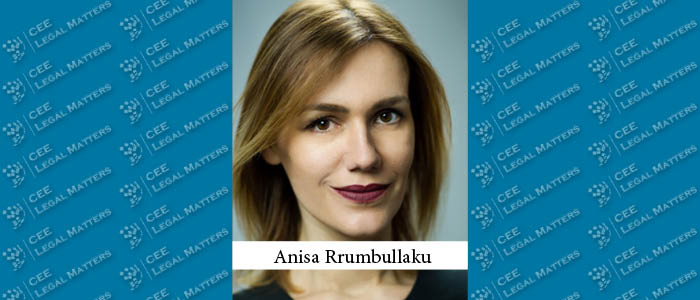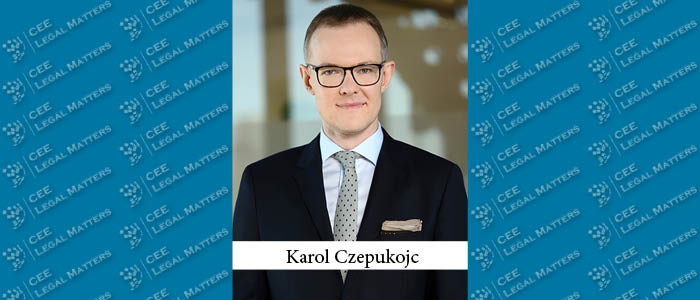Galloping inflation and post-COVID-19 challenges are shaping the litigation market in Austria, with an unparalleled volume of insolvencies feeding into a high rate of litigation. Meanwhile, the Austrian government remains hesitant to implement the European collective redress system.
External and Internal Investigations Affected by Recent Developments
Internal investigations continue to be a crucial part of a robust compliance management system. Short messages exchanged on smartphones have become a significant source for internal as well as external investigations. The Austrian prosecution authority understands that screening smartphones is close to “manna from heaven” for any investigator. This Market Snapshot reports on two important developments in Austria: a constitutional court decision requiring a significant change of the law, and the impact of the newly implemented law for the protection of whistleblowers.
Slovenia: Amendment to the Insolvency Act Brings Additional Duties to the Management and Supervisory Bodies
On November 1, 2023, the amendment to the Slovenian Insolvency Act (ZFPPIPP-H) entered into force and introduced a series of significant changes that should not be overlooked.
Austria: Success of Reorganization Plan and Out-of-Court Restructurings, Yet Failure of Preventive Restructuring Procedures
Austria implemented Directive (EU) 2019/1023 on preventive restructuring frameworks with the Restructuring Regulation, which came into force on July 17, 2021, and introduced (further) judicial proceedings for preventive restructuring. Practice, however, has shown that the reorganization plan in insolvency proceedings and out-of-court restructuring remain the methods of choice in Austria.
North Macedonia: Saving Businesses – Restructuring vs. Liquidation
As a result of the challenges that the local market has been facing over the past years brought on by the recent pandemic, wars, and other changes in the market, the majority of businesses are faced with losses and accumulating high levels of debt. Consequently, enormous pressure is imposed on businesses, including on their viability, which, in turn, pushes the need to explore methods for overcoming these obstacles.
Hungary: A General Overview of the Current Solutions for Insolvency in Hungarian Law
If someone is unable to pay their outstanding and due debts (or is just partly able to do so), that person is considered insolvent. This applies to companies and to natural persons as well. The number of companies that had to cease operations because of insolvency increased in 2023. Although the Hungarian legal environment provides several solutions to this problem, these have different effectiveness and have different consequences for both debtors and creditors. Below is a general overview of the four typical procedures for dealing with insolvency in the current Hungarian law.
Kosovo: Insolvency and Restructuring for Banks and other Financial Institutions – What is There to Know?
In Kosovo, there has been a diverse blooming of local and international companies. In the daily transactions of these companies, financial institutions continue to act as a catalyst that affects industries’ development. However, as opposed to these companies, financial institutions in Kosovo are regulated exclusively by the Law on Banks and the Law on Insurances. One important aspect of these laws is the procedures for the establishment, recovery, and liquidation of financial institutions in Kosovo, where an active role is foreseen for the Central Bank of the Republic of Kosovo (CBK) as a regulatory body in issuing guidelines and also approvals in cases of restructuring and voluntary dissolution of the financial institutions.
Albania: Insolvency and Restructuring
Albania underwent a substantial overhaul in its approach to insolvency and restructuring proceedings with the enactment of Law No. 110/2016 “On Bankruptcy” in 2017. This legislative stride replaced a prior law that had been in effect since 2002, often leading to disputes and difficulties in uniform enforcement.
Serbia: Navigating International Insolvency – Informing, Lodging Claims, and Legal Frameworks
All domestic or foreign creditors can lodge claims in insolvency, but international practice shows a stark disadvantage for foreign creditors despite supposed equality. This article delves into two key aspects – how foreign creditors are informed and lodge claims – shedding light on their status within Serbia’s legal framework. Key insights stem from major international documents like the UNCITRAL Model Law on Cross-Border Insolvency (MLCBI), EU Regulation 2015/848 on Insolvency Proceedings (Regulation), with Serbian insolvency primarily governed by the Insolvency Act (Act).
Czech Republic: Preventive Restructuring Introduced
On September 23, 2023, the Act on Preventive Restructuring came into force in the Czech Republic. It transposes EU Directive 2019/2023 on preventive restructuring frameworks, on discharge of debt and disqualifications, and on measures to increase the efficiency of procedures concerning restructuring, insolvency and discharge of debt, and amending Directive (EU) 2017/1132.
Moldova: Navigating the Insolvency Legal Landscape
Moldova faces significant challenges in terms of insolvency in the future. In exploring the factors influencing this area of law, we examine the current state of affairs, anticipate trends, and look at how legal practitioners are gearing up to meet the expected rise in demand. Let’s break down the key points.
Ukraine: Debt Restructuring Trends
The Ukrainian economy has endured unprecedented shocks resulting from the unprovoked invasion by Russia, which led to the seizure of assets in the occupied territories, massive destruction of or damage to assets throughout Ukraine, closure of a number of markets, disruption of various transport routes, huge losses in trade, flight of capital and human resources, etc.
Poland: Outline of the Court Restructuring and Bankruptcy Legal Framework
In a time of economic turmoil, company directors and owners focus on maintaining their businesses as going concerns, ensuring financial stability, and managing relationships with their creditors, contractors, and employees. When necessary, that includes considering strategic debt management options. On the other hand, creditors and contractors concentrate on properly assessing and understanding the risks associated with a dynamically changing commercial environment, evaluating their strategies toward clients, and implementing adequate safeguards and responses to emerging threats.
Croatia: Insolvency and Restructuring
In Croatia, the legal landscape governing insolvency and restructuring is meticulously outlined in the Insolvency Act (Official Gazette no. 71/15, 104/17,36/22) providing a comprehensive framework for the initiation and execution of pre-insolvency and insolvency proceedings, outlining the ensuing legal consequences, and delineating the respective rights and obligations of debtors and creditors. With the recent amendment to the Insolvency Act introduced in 2022, solutions from the European Union have been adopted to encourage early restructuring of sustainable businesses, maintaining the continuity of company operations, and preventing insolvency. With these new changes, emphasis is being placed on insolvency prevention while also providing a strong framework for the protection of the creditors.
Bulgaria: A Step Closer to a More Effective Insolvency and Restructuring Regime
The extended deadline for the implementation of the Directive (EU) 2019/1023 has expired on July 17, 2022. More than a year later, in August 2023, the amendments to the Bulgarian Commercial Act concerning, among other things, insolvency and restructuring rules and procedures were finally published in the Bulgarian State Gazette. Apart from pure alignment with the European legislation, the amendments are aimed at certain long-standing shortcomings of the Bulgarian insolvency and restructuring regime.
Romania: Longstanding Legal Debate Over Improper Bookkeeping Settled by High Court
The Romanian High Court has recently settled a long-standing legal debate over the conditions for holding administrators personally liable in cases of improper bookkeeping of an insolvent company. This issue has been a point of contention within the legal system since 1995, creating divergence in jurisprudence that required resolution.
Slovakia: Dawn of a New Era for Insolvency Proceedings?
For a long time, the Slovak insolvency law landscape was overshadowed by deep structural problems that resulted in a dire outlook for creditors in insolvency and restructuring proceedings.
Fake Environmental Awareness, or the “Green Washing” Phenomenon According to the Hungarian Competition Authority
Today, more and more companies are trying to convince consumers with the pretence of a sustainable future and environmental awareness. However, in many cases, there is no real responsibility behind such marketing activities, which are simply intended as an effective advertising ploy to make green claims.
































